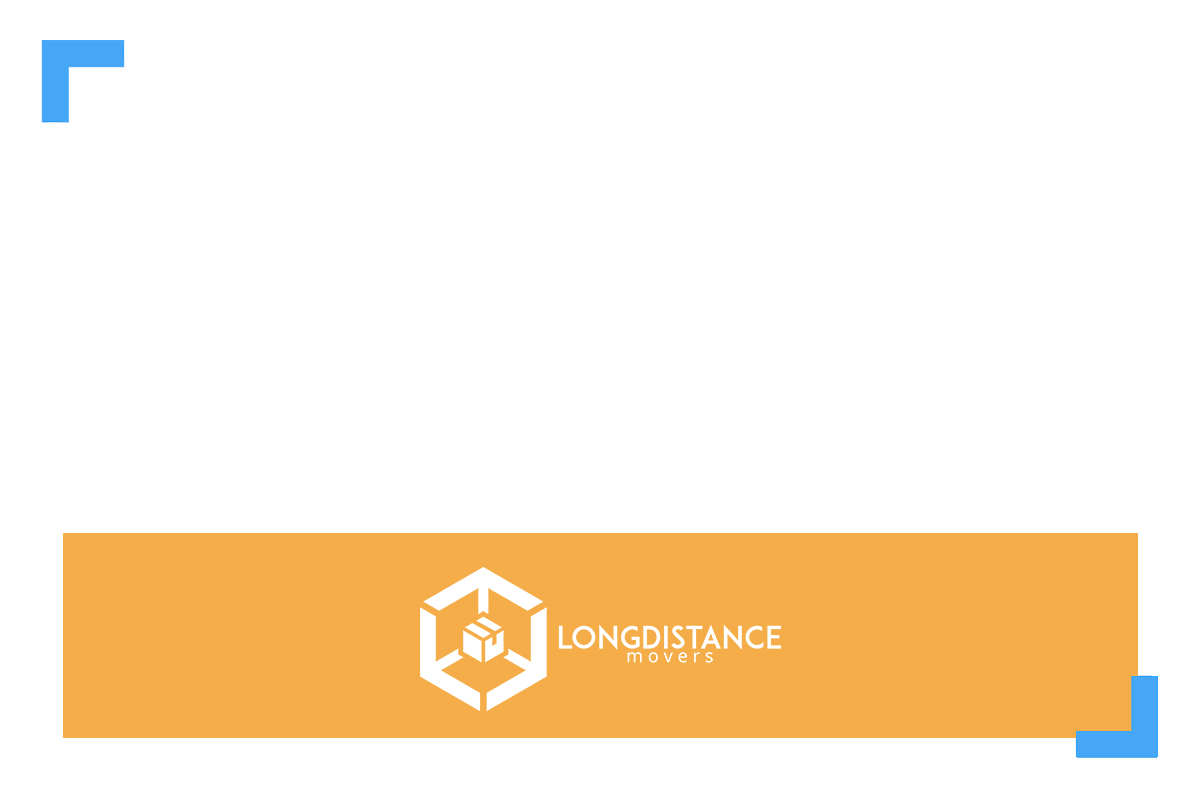Have you been planning a long-distance relocation? If so, do you know how to get a job in a new city? Moving cross country will keep you as busy as it gets, so why not make your job hunt a bit easier amid this chaos? Here are some useful tips and tricks for finding a job in a new city.


Research the Job Market Before Moving
What is the first thing to do when moving to a new city?
Well, finding a job. After you have finally figured out how to unpack after a move, cleaned, settled your utilities, and made yourself at home, it’s time to go find a job.
Unless you’re moving for a job, you probably have some savings for the first few months after the move, but what about when the fund runs out? If you’re not already working, you’ll need to start. So before your long-distance move, make sure to check the job availability in your future town as well as companies located in the area to make your job hunt less stressful. It’s better to inform yourself beforehand, so you know what options await you.
How to Get a Job Before Moving to a New City?
You’re probably wondering can you get a new job immediately after a move and what’s the fastest way to get a job in a new city? Well, truth be told, yes you can, but your biggest chances are searching online.
Websites are goldmines when it comes to jobs. Checking out sites such as Glassdoor or Monster is a great idea. On these sites, you have the option to search for jobs in specific states and cities, as well as different professional fields. They will give you an insight into what type of opportunities you’ll have once you relocate, as well as the option of applying for a job beforehand. In the best-case scenario, you can land a job even before you arrive.


Consider as Many Job Options as Possible
Whether you move to the luxurious suburbs of Los Angeles or you’re moving to a small town, you will need to adapt to the labor market. Your first working experience after the relocation might not be all that you expected. You might end up doing something outside of your professional field or something that’s out of your comfort zone, or you could be stuck doing the same work you did before.
But just be patient and look for opportunities where you can. A move could be a great chance to change your career path if you were previously unsatisfied or just bored. You’ll have some time after your long-distance move to think of your career choices before getting into the hunt.


Use Networking
Building a reliable network is crucial if you want to chase success. Take into consideration all of the professional meetings, conferences, social gatherings you attended, as they help you gather contacts. Everyone you have worked with is an aid to getting a job in a new city. By working hard and leaving good impressions on your business partners and colleagues, you’ll be able to get excellent referrals, advice, and support when it’s time for a job change. Even though you’re relocating, the referrals you get will undoubtedly impress your future employers.
Helpful Resources Are Everywhere
Include all of the people you have previously worked with, family, friends, and acquaintances into your network. Just because someone is not from the same professional field as you does not mean you won’t have any use of their contact. Everyone you meet after your relocation might potentially help you in your work search as well. Anyone can become a source of information, so start from your immediate surroundings:
- Alumni organizations
- Professional associations
- Classmates
- Local clubs
- Previous employers and co-workers
- Friends that are local or out of town
- Sites like LinkedIn
LinkedIn is a Great Way to Start Networking
If you’re not very familiar with gathering contacts and social networking, use one of many websites to start. LinkedIn, for example, is one of the best sites for trying to expand your network. With around one hundred thirty-three million users in the US alone, the site is one of the best online employment platforms.
Create an account, fill out all of your information, and follow the companies that pique your interest. You can also join LinkedIn groups in a target location, so check out groups located in your future town. This way you’ll know what awaits you.
You’ll also be able to stay in contact with your previous colleagues.
Using the site is a great way to draw attention from future employers, as your profile is like your cover letter, so make sure that all of your information is updated, such as your address change, name, photo, and CV.


Know Your Companies
We all have anxiety about moving to another state or city, as we never know what to expect. That’s why you should prepare before the move, and get info about all of the major companies in your new city. Try to gain as much knowledge as possible about the companies that interest you. Ask around town; someone might have working experience there or know someone who does.
Secondly, always keep track of the companies’ websites as you might find some useful information. Some companies even have applications posted on their pages. If you apply through this route, it might show that you have an immense interest in the company and you keep up with their posts.
Understanding how the companies function and being familiar with their businesses will help you in your interviews.
How to Get Noticed?
Imagine you’re moving from a small town to a big city. You would probably have fewer contacts than someone who has lived there for years, and if you’re interested in getting into a huge company, you’ll need to stand out.
The most common mistake we make when looking for jobs is having one universal CV that we send to all of our potential employers. Don’t do that. Optimize your CV for every one of your applications. If you want to stand out, you need to have a resume that caters to what the company is looking for in an employee. Lying is out of the question, of course, but fill in the information that would be of interest to your potential employers and leave out all the unnecessary. For example, an employer who offers remote work won’t care much about whether you have a driver’s license or not. They would rather hear about your ability to self-manage and organize. So, bear this in mind when creating your resume.
Additionally, it’s always great to have a letter of recommendation from your previous employer as it will vouch for your working ethic and abilities.


Never Turn Down Interviews
Have you been offered an interview for a position that isn’t exactly up your alley? Don’t turn it down. You might end up finding out more about the company and changing your opinion. Or perhaps they end up offering you a larger payment than what you would get in your company of choice. Take all of these into account! And if you reject them anyway, the interview will still be a great way to practice.
Maybe you like the company but not the position they are offering, this could be a step further in achieving your goal.
Overall, when it comes to interviews, do as many as possible. You never know the outcome. Maybe you’ll find something more ideal than what you have previously thought was the right position for you.
How to Do Well in Interviews
Landing an interview and doing well is quite challenging. If your resume passed and you have been called in for an interview, you’ll probably be wondering how to impress your potential employers? While we have given you some general advice already, here are some tips on preparing for an interview:
- Show knowledge of the company – we have already mentioned this, but it must be stressed out as it is essential. Always inform yourself about the company before the interview. You need to be able to show your interest as well as understanding.
- Accent the qualities they’re looking for – you have to show them that you’re the best fit for this job! Try to point out all of your qualities that fit the position description both in your CV and interview.
- Cover all of the basic interviewing questions – always be prepared. While all these questions are repetitive, some employers might enquire about your relocation circumstances, so it’s always good to prepare something beforehand.
Show Eagerness
Of course, you don’t want to seem too desperate to get hired. But make sure to show your eagerness to work and, more importantly, readiness to learn new things and continuously improve in your working ethic. The employer also needs to feel like you applied for the position because you really want it, and not just because it popped up in your search engine randomly. Even if you have other interviews planned, you should still try to make it seem that this is the place you want to work at the most.


Do Temping
Out of luck and unable to find what you want to do right off the bat? Try doing some temp work. While it may not be perfect and permanent, you will have enough time to search for other jobs since you won’t be working full-time. Having a flexible schedule is suitable for starters.
Besides, this might help you grow your network, as you’ll meet lots of people.
Temping is also an excellent way to boost your skills, and it also gives you a chance to explore your career options if you’re still uncertain about your future career path.


Find a Recruiter
Recruiters are always looking for talents, so if you have exceptional skills in a particular field seek a recruiter working in your industry in your future town. Even if they’re short on jobs, they might be able to break down the working market for your field and you’ll be able to adapt quickly.


Finding a Job in a New City Will Take Time
Don’t forget that looking for jobs is a process that takes a while and requires a bit of extra effort. So don’t get discouraged if you don’t get a single call back in the first period. Besides, you still have to find some quality moving service, and maybe even some packing services for your relocation. Your career can take a back seat for a few weeks. If you want to speed up the whole relocation process, contact a reputable and professional moving company to avoid any complications during your move. Why do it all by yourself when you can hire professionals and concentrate on more important matters.




